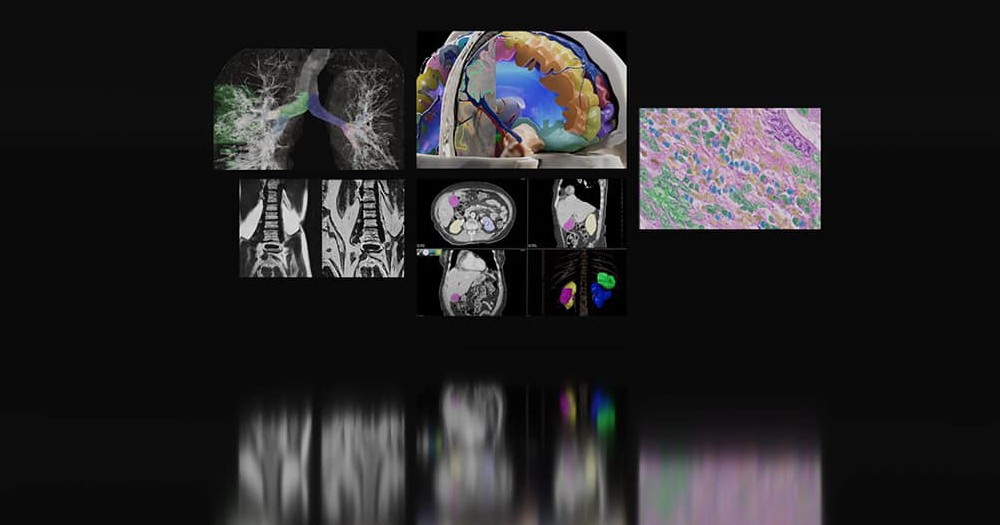Medical centers tap NVIDIA-powered federated learning for better cancer detection

Medical research is constantly evolving, with technology playing a pivotal role in improving patient outcomes. One of the most exciting advancements in recent years is the use of artificial intelligence (AI) to aid in cancer detection.
Related to that, we now have a group of experts from prominent U.S. medical centers and research institutes leveraging AI and a technique known as federated learning to enhance tumor segmentation models. With NVIDIA's cutting-edge tools, these institutions aim to improve the accuracy of cancer detection while ensuring data privacy and security.
How does it work?
Federated learning allows multiple organizations to collaborate on developing AI models without the need to share sensitive data. Rather than exchanging data, which poses privacy risks, the participating medical centers share model updates.
As described by Yuankai Huo, assistant professor of computer science at Vanderbilt University, "During training, we exchange the model rather than exchange the data."
Each institution trains its local model on proprietary data, and these models' updates are combined to improve a global model. This technique enables the creation of a robust, generalizable model across different healthcare settings without compromising patient privacy.
In this project, six medical centers contributed imaging data on renal cell carcinoma, a type of kidney cancer, using NVIDIA's open-source NVFlare framework. This collaboration resulted in a model that is both accurate and flexible, adapting to the unique characteristics of data from each site. Additionally, the project is experimenting with NVIDIA MONAI, an AI-assisted annotation tool, to further refine the data labeling process, aiming to improve overall model performance.
Why does it matter?
The implications of this federated learning project are significant. Accurate tumor segmentation models can greatly enhance early detection of cancers, leading to better patient outcomes.
The challenge, as John Garrett from the University of Wisconsin-Madison points out, is that "imaging AI is developing faster than research institutes can set up data-sharing contracts." Federated learning solves this issue by enabling collaboration across institutions while preserving the privacy of patient data. Furthermore, the ability to train AI models on diverse datasets ensures that these models are more generalizable and capable of performing well in various medical contexts.
AI-assisted annotation tools, like NVIDIA MONAI, reduce the time and effort required to label large datasets, often a bottleneck in medical imaging research. By integrating AI into the annotation process, researchers hope to create even more accurate models, while still relying on expert validation to ensure the precision of the results.
The context
The rise of privacy regulations, such as GDPR and HIPAA, has made sharing medical data between institutions increasingly difficult. Federated learning addresses this challenge by enabling collaboration without requiring data transfer, which is crucial for compliance with privacy laws.
As Khaled Younis, chair of the SIIM Machine Learning Tools and Research Subcommittee, notes, "Federated learning techniques allow enhanced data privacy and security in compliance with privacy regulations.
"This approach is especially timely, as advancements in imaging AI outpace the development of traditional data-sharing agreements. With support from NVIDIA's Academic Grant Program, institutions like Georgetown University, the Mayo Clinic, and Vanderbilt University are pioneering this technology to advance cancer research. By publishing their methodologies, datasets, and pre-trained models - they hope to enable other researchers to adopt these tools and further revolutionize medical imaging.
By tapping into the power of AI and federated learning, medical institutions can collaborate like never before — all while safeguarding patient data and accelerating breakthroughs in cancer detection.
💡Did you know?
You can take your DHArab experience to the next level with our Premium Membership.👉 Click here to learn more
🛠️Featured tool
 Easy-Peasy
Easy-Peasy
An all-in-one AI tool offering the ability to build no-code AI Bots, create articles & social media posts, convert text into natural speech in 40+ languages, create and edit images, generate videos, and more.
👉 Click here to learn more


